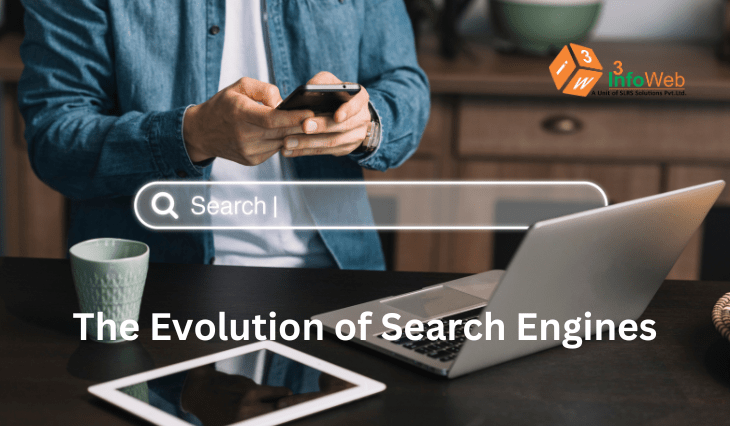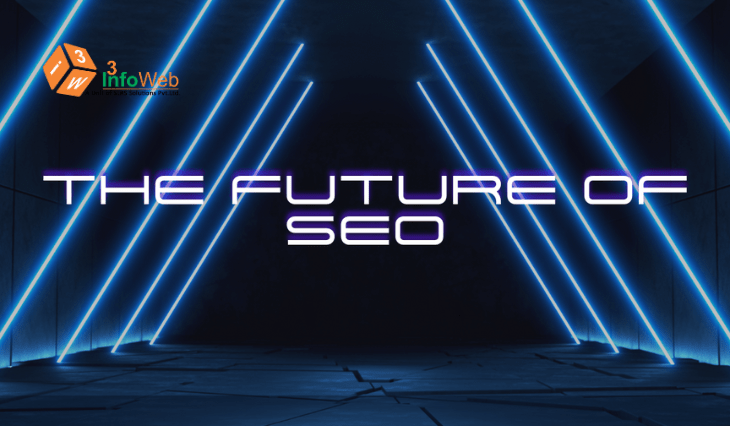
The Future of SEO in a World Dominated by ChatGPT: Will Search Engines Become Obsolete?
The Future of SEO
Search engine optimization (SEO) has been the backbone of digital marketing strategies for decades. Businesses have relied on search engines like Google to drive traffic, generate leads, and boost sales. However, the rise of advanced AI models like ChatGPT has introduced a new paradigm in how people seek and consume information. This blog explores the potential future of SEO in a world where AI-powered conversational agents could potentially overshadow traditional search engines.
Introduction
- What is SEO?
- Brief history of search engines
- Introduction to ChatGPT and AI conversational agents
- Purpose of the blog: Exploring the impact of ChatGPT on the future of SEO
The Evolution of Search Engines
- Early search engines and their algorithms
- The rise of Google and the importance of PageRank
- Evolution of SEO practices over the years
- The current state of search engines: Features and capabilities
Understanding ChatGPT and Its Capabilities
- What is ChatGPT?
- How ChatGPT works: Natural language processing and machine learning
- Capabilities of ChatGPT: Conversational AI, information retrieval, and content generation
- Advantages of ChatGPT over traditional search engines
Potential Impact of ChatGPT on Search Engines
- Shift from keyword-based search to conversational queries
- Real-time information retrieval and personalized responses
- Reduction in click-through rates for traditional search results
- Impact on advertising revenue for search engines
The Future of SEO in a ChatGPT-Dominated World
- Adapting SEO strategies for AI-driven environments
- Optimizing for natural language queries
- Focus on high-quality, conversational content
- Importance of structured data and schema markup
- Role of voice search and virtual assistants
- Emergence of new SEO tools and technologies
- Case studies: Businesses successfully adapting to the new SEO landscape
Challenges and Opportunities for Businesses
- Navigating the transition from traditional SEO to AI-driven SEO
- Challenges faced by small and medium-sized businesses
- Opportunities for innovation and growth
- Role of human creativity and expertise in the AI era
Ethical Considerations and Future Directions
- Privacy concerns and data security
- Bias and fairness in AI-generated content
- The role of regulations and standards in AI-driven search
- Future directions: Integration of AI and search engines
Conclusion
- Recap of key points
- Final thoughts on the future of SEO and search engines
- Call to action: Preparing for the AI-driven future
Introduction
What is SEO?
Search Engine Optimization (SEO) is optimizing websites and content to rank higher in search engine results pages (SERPs). This involves various techniques, including keyword research, on-page optimization, link building, and technical SEO, aimed at improving the visibility and relevance of content to search engines and users.
Brief History of Search Engines
The journey of search engines began in the early 1990s with the launch of primitive search tools like Archie and Gopher. However, it was the advent of Google in 1998, with its innovative PageRank algorithm, that revolutionized the way people searched for information online. Google’s ability to deliver highly relevant search results quickly made it the dominant search engine and SEO practices evolved to keep pace with its changing algorithms.
Introduction to ChatGPT and AI Conversational Agents
ChatGPT, developed by OpenAI, represents a significant advancement in artificial intelligence. It uses natural language processing (NLP) and machine learning to understand and generate human-like text based on the input it receives. Unlike traditional search engines that rely on keyword matching, ChatGPT can engage in meaningful conversations, answer complex queries, and provide personalized responses.
Purpose of the Blog
This blog aims to explore the potential impact of ChatGPT and similar AI technologies on the future of SEO. By examining the capabilities of ChatGPT, the challenges and opportunities it presents, and how businesses can adapt their SEO strategies, we will provide a comprehensive overview of what lies ahead for digital marketing in an AI-driven world.
The Evolution of Search Engines

Early Search Engines and Their Algorithms
In the early days of the internet, search engines like AltaVista, Lycos, and Yahoo! played a crucial role in helping users find information. These early search engines used basic algorithms that matched keywords in user queries with those in website content. While functional, these methods often resulted in irrelevant or low-quality search results.
The Rise of Google and the Importance of PageRank
Google’s introduction of the PageRank algorithm marked a turning point in the evolution of search engines. PageRank assessed the quality and relevance of web pages based on the number and quality of links pointing to them. This innovation significantly improved the accuracy and usefulness of search results, catapulting Google to the forefront of the search engine market.
Evolution of SEO Practices Over the Years
As search engines evolved, so did SEO practices. Early SEO focused on keyword stuffing and backlink spamming to manipulate rankings. However, search engines quickly adapted to counteract these tactics, leading to more sophisticated SEO strategies that prioritize high-quality content, user experience, and ethical link-building practices.
Current State of Search Engines: Features and Capabilities
Today’s search engines are highly advanced, utilizing complex algorithms that consider hundreds of ranking factors. Features like semantic search, voice search, and AI-driven enhancements have made search engines more intuitive and user-friendly. Additionally, search engines now offer various services beyond web search, including local search, image search, and personalized recommendations.
Understanding ChatGPT and Its Capabilities
What is ChatGPT?
ChatGPT is a language model developed by OpenAI that can generate human-like text based on the input it receives. It is part of the GPT (Generative Pre-trained Transformer) family of models and is designed to engage in natural language conversations, answer questions, and provide detailed information on a wide range of topics.
How ChatGPT Works: Natural Language Processing and Machine Learning
ChatGPT utilizes advanced natural language processing (NLP) techniques to understand and generate text. It is trained on a vast dataset of text from the internet, allowing it to learn patterns, context, and nuances in human language. When a user inputs a query, ChatGPT processes the text, identifies the intent, and generates a coherent and contextually appropriate response.
Capabilities of ChatGPT: Conversational AI, Information Retrieval, and Content Generation
ChatGPT excels in several key areas:
- Conversational AI: ChatGPT can engage in meaningful and dynamic conversations, making it an effective tool for customer support, virtual assistants, and interactive applications.
- Information Retrieval: ChatGPT can quickly retrieve and summarize information from its training data, providing users with accurate and relevant answers to their queries.
- Content Generation: ChatGPT can generate high-quality content for various purposes, including articles, marketing copy, and social media posts.
Advantages of ChatGPT Over Traditional Search Engines
ChatGPT offers several advantages over traditional search engines:
- Natural Language Understanding: ChatGPT can understand and respond to queries phrased in natural language, eliminating the need for users to formulate keyword-based searches.
- Personalized Responses: ChatGPT can provide personalized and context-aware responses based on user interactions.
- Enhanced User Experience: By engaging in conversational interactions, ChatGPT can offer a more intuitive and user-friendly experience compared to traditional search engines.
Potential Impact of ChatGPT on Search Engines
Shift from Keyword-Based Search to Conversational Queries
One of the most significant impacts of ChatGPT on search engines is the shift from keyword-based searches to conversational queries. Users no longer need to think in terms of keywords; they can simply ask questions in natural language and receive relevant responses. This shift could fundamentally change how SEO is approached, focusing on optimizing content for conversational queries rather than traditional keywords.
Real-Time Information Retrieval and Personalized Responses
ChatGPT’s ability to retrieve and summarize information in real-time offers a distinct advantage over traditional search engines. Users can receive immediate, personalized responses without navigating through multiple search results. This real-time capability could reduce the reliance on traditional search engines for information retrieval, impacting their traffic and relevance.
Reduction in Click-Through Rates for Traditional Search Results
As users increasingly turn to ChatGPT for quick answers and information, the click-through rates for traditional search results may decline. Businesses that rely heavily on organic search traffic could see a reduction in website visits, prompting the need for new strategies to attract and engage users.
Impact on Advertising Revenue for Search Engines
Search engines like Google generate significant revenue from advertising. If users begin to favor AI-driven conversational agents over traditional search engines, the demand for search-based advertising could decrease. This shift could have profound implications for the business models of major search engines, leading to a reevaluation of their revenue strategies.
The Future of SEO in a ChatGPT-Dominated World

Adapting SEO Strategies for AI-Driven Environments
Businesses must adapt their SEO strategies to thrive in a world dominated by ChatGPT and similar AI technologies. Here are some key considerations:
- Optimizing for Natural Language Queries: Content should be tailored to address natural language queries, focusing on providing clear, concise, and relevant answers to user questions.
- Focus on High-Quality, Conversational Content: High-quality, engaging, and conversational content will be essential to attract and retain users. Content should be informative, easy to read, and provide value to the audience.
- Importance of Structured Data and Schema Markup: Implementing structured data and schema markup can help AI models understand and retrieve content more effectively. This can improve visibility and relevance in AI-driven search results.
Role of Voice Search and Virtual Assistants
Voice search and virtual assistants are becoming increasingly popular, and their integration with AI models like ChatGPT will further influence SEO practices. Optimizing content for voice search involves focusing on conversational language